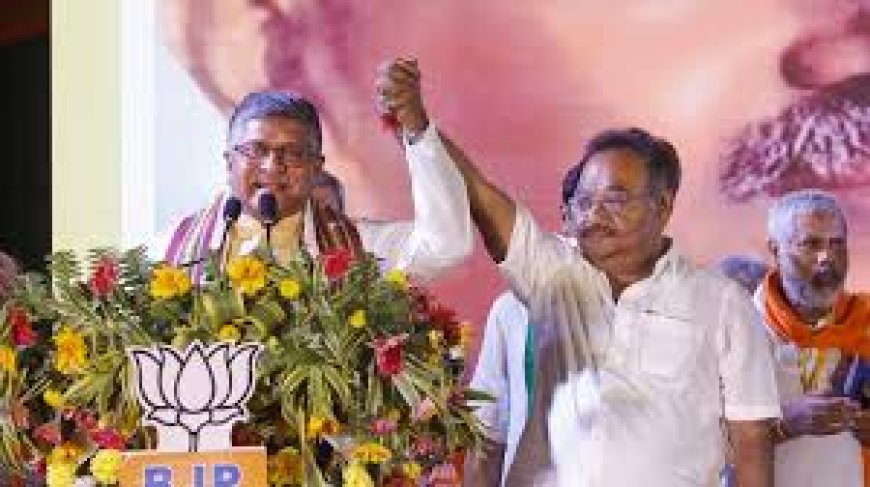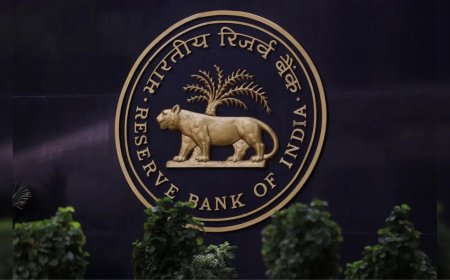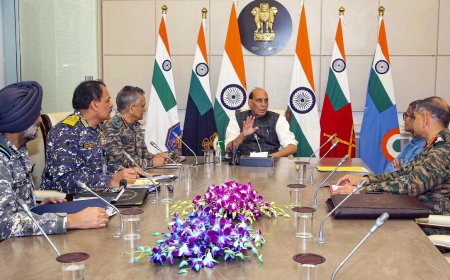BJP Bengal Under Samik Bhattacharya: Cultural Shift from Ram to Kali, Veg to Mutton
The BJP in West Bengal undergoes a strategic image makeover under new state president Samik Bhattacharya, aligning more with Bengal's cultural roots—from invoking Kali to embracing mutton curries.

A Cultural Makeover for BJP in Bengal
In a significant shift that may redefine its electoral strategy in West Bengal, the Bharatiya Janata Party (BJP) under newly-appointed state unit president Samik Bhattacharya is taking visible steps to align more closely with Bengal’s deep-rooted cultural and religious identity. From subtly stepping away from the North Indian saffron template dominated by the Ram Mandir narrative to embracing Kali worship and the state’s love for mutton curry, the BJP is in the midst of a calculated transformation aimed at reconnecting with the Bengali psyche.
Bhattacharya, a veteran spokesperson of the party and a known face in Bengal’s political circles, is the BJP’s first Bengali-speaking face to helm the state unit since its meteoric rise in the 2019 Lok Sabha polls. His appointment appears to signal a belated but deliberate course correction in how the BJP engages with the people of Bengal.
From 'Jai Shri Ram' to 'Jai Maa Kali'
One of the most symbolic gestures of this image makeover is the increasing invocation of Maa Kali, a deity deeply revered across Bengal, often perceived as the state's spiritual guardian. The BJP’s earlier emphasis on Lord Ram, while resonant in northern India, failed to strike a chord with many Bengalis who saw the slogan "Jai Shri Ram" as an imported war cry disconnected from their cultural fabric.
“In Bengal, if you want to connect with the emotional pulse of the people, you cannot ignore Kali. Samik Bhattacharya understands this,” said Professor Pranab Chakraborty, a political analyst from Jadavpur University. “It’s not just a religious shift—it’s symbolic of a broader cultural recalibration.”
Culinary Signals: From Sattvik to Spicy
Another subtle but telling move in BJP’s transformation is in the gastronomic space. Bhattacharya has made no secret of his love for mutton curry, a staple in Bengali households, particularly during celebrations. The gesture is seen as a contrast to the party's earlier vegetarian narrative that inadvertently alienated many in Bengal, where non-vegetarian food is a norm, not an exception.
In public meetings and interviews, Bhattacharya has openly spoken about his fondness for fish and meat dishes, reinforcing his image as a “son of the soil” rather than a saffron-clad outsider.
“This is more than food—it’s optics,” remarked Sudeshna Sen, a political commentator. “The BJP is trying to shed its vegetarian Brahminical image to appear more relatable to the average Bengali, who might vote for Trinamool Congress simply because they see it as culturally authentic.”
Strategic Timing Before 2026 State Polls
With the 2026 West Bengal Assembly elections in sight, the BJP's course correction is not merely symbolic—it’s strategic. After an aggressive yet underwhelming performance in the 2021 assembly polls, where it secured 77 seats against Trinamool Congress’ (TMC) 213, the BJP has been rethinking its playbook.
Samik Bhattacharya’s appointment comes at a time when the party is battling internal dissent, organizational drift, and cultural disconnect in a state where identity politics and regional pride are paramount. By elevating a Bengali face who speaks the local language fluently, is familiar with the ground realities, and isn’t seen as an outsider, the BJP is trying to reclaim lost ground.
From Outsider to Insider: The New Strategy
In earlier years, the BJP’s Bengal strategy was criticized for its “Delhi model” approach—importing leaders, slogans, and campaign styles from North India that did not sit well with Bengali voters. The result was a narrative shaped more by confrontation than connection. With Bhattacharya at the helm, insiders say there will be a stronger emphasis on grassroots connect, regional symbols, and emotional intelligence.
“Samik is not an imposition—he’s a translation of BJP into Bengali,” said a senior party functionary who preferred anonymity. “He may not be flamboyant like Dilip Ghosh or aggressive like Suvendu Adhikari, but he is authentic. That’s what matters now.”
Trinamool Still in Command
Despite the BJP’s recalibration, Mamata Banerjee’s Trinamool Congress (TMC) continues to enjoy a strong grip over the state’s political ecosystem. TMC leaders have dismissed BJP’s cultural makeover as “tokenism,” claiming that the BJP is still fundamentally disconnected from Bengal’s ethos.
“Mere chants of Kali Maa or eating mutton won’t win you Bengal. The people know the difference between real love for Bengal and political stunts,” said Derek O’Brien, senior TMC leader.
Yet, analysts argue that even these symbolic gestures are important in shaping voter perceptions.
Investor and Political Outlook
For political watchers and investors, BJP’s soft pivot could signal a more tempered, regionally-aligned strategy that is likely to reduce confrontational politics in the state and enhance governance-driven narratives. A stable and culturally cohesive BJP might even collaborate more effectively with the Centre on infrastructure and industrial projects in Bengal.
“Markets like stability and clarity. If BJP under Bhattacharya can avoid the combative chaos of past years and offer a genuine opposition based on development rather than identity wars, it might bode well for Bengal’s business environment,” said Sanjeev Ghosh, an economist and policy observer.
More Bengali, Less Saffron
Samik Bhattacharya's elevation may not change the BJP’s electoral fortunes overnight, but it marks a meaningful attempt at becoming less of an ideological export and more of a local alternative. Whether it is through invoking Kali, relishing mutton curry, or speaking Bangla like a native, the BJP is finally signaling that it is willing to speak Bengal’s language—both literally and metaphorically.
Only time will tell if voters will respond to this cultural overture. But one thing is clear: the BJP in Bengal, under Samik, is attempting to evolve from “party from Delhi” to “party of Bengal.”
What's Your Reaction?
 Like
0
Like
0
 Dislike
0
Dislike
0
 Love
0
Love
0
 Funny
0
Funny
0
 Angry
0
Angry
0
 Sad
0
Sad
0
 Wow
0
Wow
0












































































